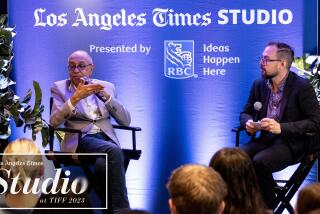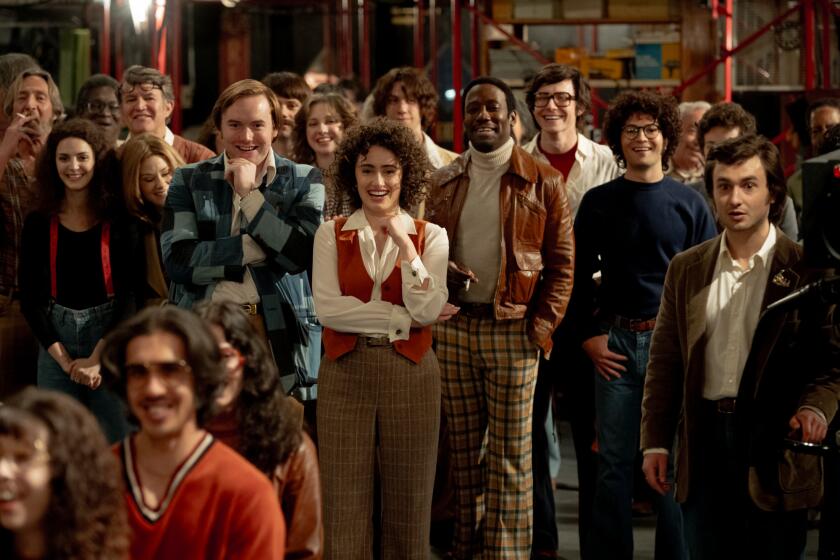How Hollywood turned a ‘blind eye’ to Emmett Till: Inside a troubled 67-year history
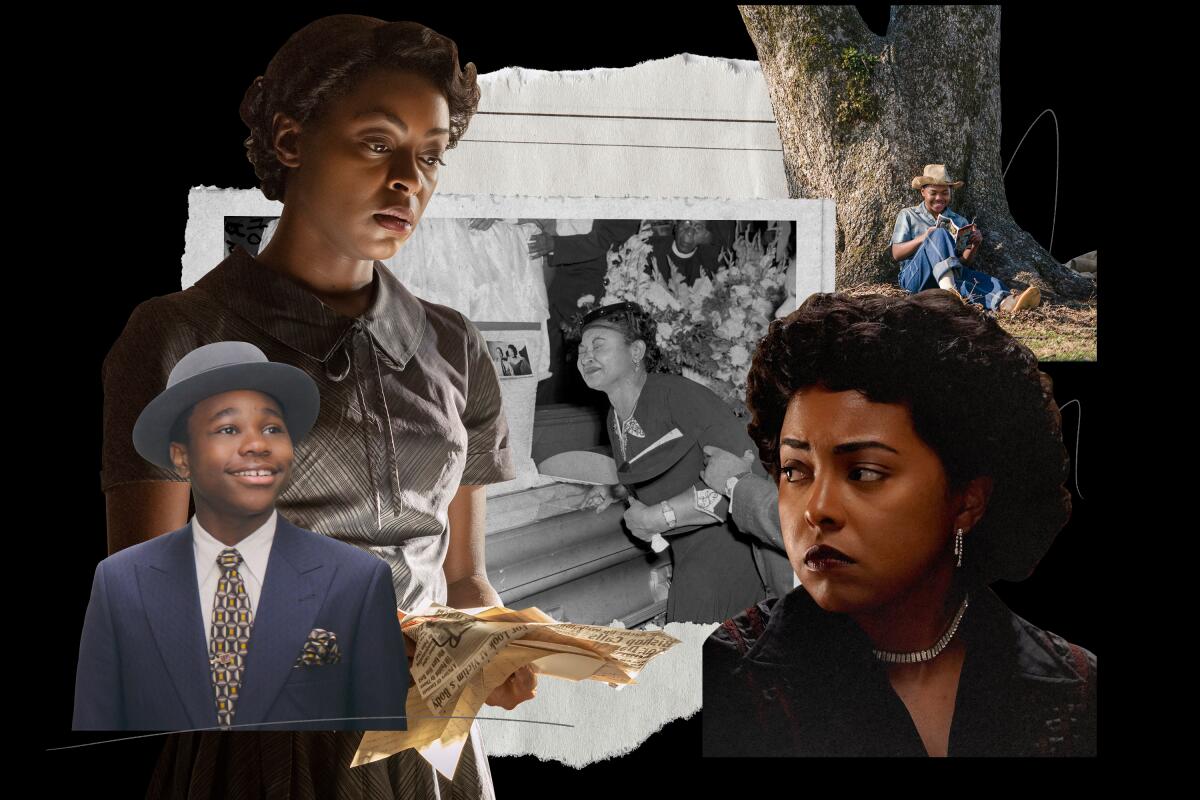
Mention “The Twilight Zone,” and the image of host and creator Rod Serling almost automatically comes to mind. The hit anthology series, which ran from 1959 to 1964, firmly established Serling as a visionary who wove social commentary and an astute understanding of human foibles into his tales of fantasy, science fiction and horror.
Before his breakthrough, Serling had tried, and failed, to tackle the issues of the day even more directly: While working on another anthology series, ABC’s “The U.S. Steel Hour,” he wrote “Noon on Doomsday,” based on the brutal 1955 killing of Emmett Till in the Jim Crow South.
After turning in his initial script, however, Serling was told to change the race of the Black and white characters to suggest “an unnamed foreigner,” and to shift the setting from the South to New England.
Serling protested as demands from censors, executives and sponsors continued: “It became a lukewarm ... emasculated kind of show,” he told TV newsman Mike Wallace in 1959, “that bore no relationship at all to what we had purported to say initially.”
His frustration helped ignite the inspiration to develop “The Twilight Zone” as his own vehicle. But the experience also illustrates the entertainment industry’s long-standing discomfort with the events surrounding the death of the 14-year-old Till, who was kidnapped and killed after being accused of whistling at a white woman in a grocery store while visiting relatives in Mississippi.
Till’s mother, Mamie Till-Mobley, staged a relentless battle to punish her son’s killers. She authorized Jet magazine to publish pictures of her son’s maimed body. Thousands attended his funeral in Chicago, during which he was seen in an open casket.
She also pushed for the development of a feature film that would dramatize the deadly encounter. “The biggest thing that Mother Mobley ever wanted was to bring Emmett’s story to the big screen,” said Keith Beauchamp, director of the documentary “The Untold Story of Emmett Louis Till.” “She would say, ‘Keith, you must continuously tell Emmett’s story until man’s consciousness is risen, because only then will there be justice for him.’”
Although Till’s death and his mother’s mission were key catalysts in the civil rights movement as it gained momentum in the 1950s and 1960s, attempts by Till-Mobley and others to develop projects about the killing ran into roadblocks for close to seven decades. Hollywood favored civil-rights-themed projects about the Rev. Martin Luther King Jr. and films like 1988’s “Mississippi Burning” in which the dominant characters were white.
Danielle Deadwyler’s performance as Mamie Till-Mobley, mother of Emmett Till, is already attracting Oscar buzz. But she knows it’s way bigger than that.
Till-Mobley, who died in 2003, did not live long enough to see the realization of her dreams this year, which has seen two major Till-related projects: The feature film “Till,” released nationwide Friday, and ABC’s limited series “Women of the Movement,” which premiered in January.
But despite the critical acclaim that greeted both projects, their unveiling also highlights the lingering challenges that face those telling the Till story. In particular, the savagery of the youth’s killing — he was tortured and lynched — and the fact that the two killers were acquitted in a jury trial (they later confessed in a magazine) make any truthful account of the crime difficult to watch.
Perhaps as a result, the makers of “Till” and “Women of the Movement” chose to emphasize the loving bond between Till-Mobley and her son, and how Till-Mobley conquered her overwhelming grief with unshakable courage.
“I hope people go to this film and see themselves in a mother-son relationship, see themselves in a mother-mother relationship,” said Whoopi Goldberg, who plays Till-Mobley’s mother, Alma Carthan, in “Till.”
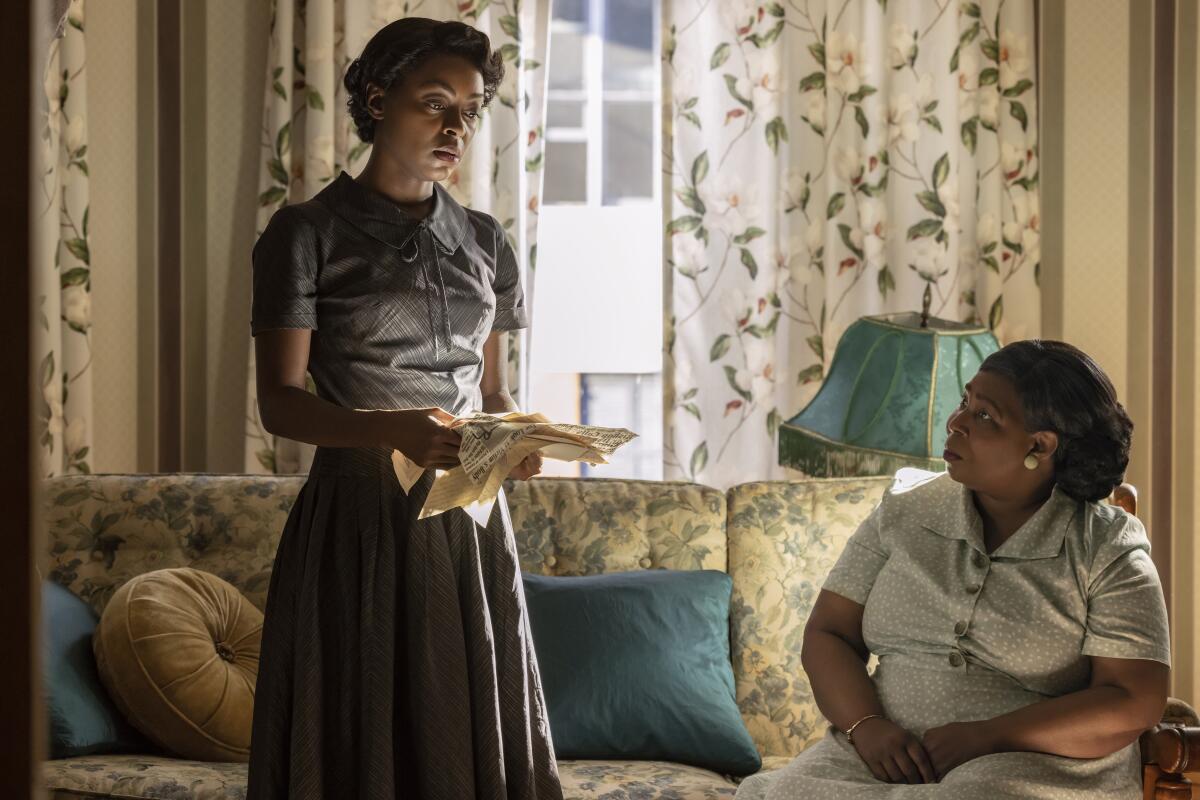
Added Goldberg, who is also an executive producer on the film, “I also hope people recognize themselves enough to say that this is still happening, and if we are not careful, this systemic racism will spread to LGBTQ folks, to trans people, Asian and Native American folks. This is a worldwide problem. Systemic racism starts as one thing and devolves into something else. We’re seeing the erasure of history, our history.”
Goldberg bristled when asked about the decades-long journey to bring Till’s story to the big screen: “I can’t figure out why it took 67 years. There’s the story of Anne Frank. That’s a really hard story to tell. But they’ve managed to make that movie several times.”
The murder of George Floyd in 2020, national outrage over law enforcement killings of unarmed Black people, and the blossoming of the Black Lives Matter movement likely paved the way for the two Till-themed projects to appear within the same calendar year after the subject was ignored for so long by Hollywood.
“It’s not an accident that we’re seeing these films in the aftermath of George Floyd, when the industry has been forced to confront head-on all these unpleasant truths about American society, not only in the past but in the present,” said Darnell Hunt, UCLA executive vice chancellor and provost.
Amazon’s ‘Them’ and Oscar nominee ‘Two Distant Strangers,’ which mix racist violence and genre elements, have ignited a debate over ‘trauma porn.’
Beauchamp, who is a producer of “Till” and a co-writer of the screenplay, said, “There is no other story that speaks to this generation and this time of political and racial reckoning [like] the story of Emmett Till.”
But luring audiences to a story so heartbreaking has been one of the central struggles of getting what happened to Till onto screens over the years. After rave reviews centered on Danielle Deadwyler’s commanding performance as Till-Mobley, “Till” collected $3.6 million over Halloween weekend, competing against escapist fare like DC Studios’ superhero film “Black Adam,” the Julia Roberts-George Clooney rom-com “Ticket to Paradise” and the horror films “Halloween Ends” and “Smile.” Producers are hoping that awards buzz for Deadwyler could potentially boost box office in the longer term.
For its part, “Women of the Movement” drew modest ratings in spite of heavy promotion by ABC and a heavyweight roster of executive producers including Shawn “Jay-Z” Carter, Will Smith and director Gina Prince-Bythewood (“The Woman King”). The series was also snubbed by the Television Academy in this year’s Emmy nominations.
Further complicating such projects’ financial prospects is a national climate in which the discourse about race has become increasingly fierce and divisive.
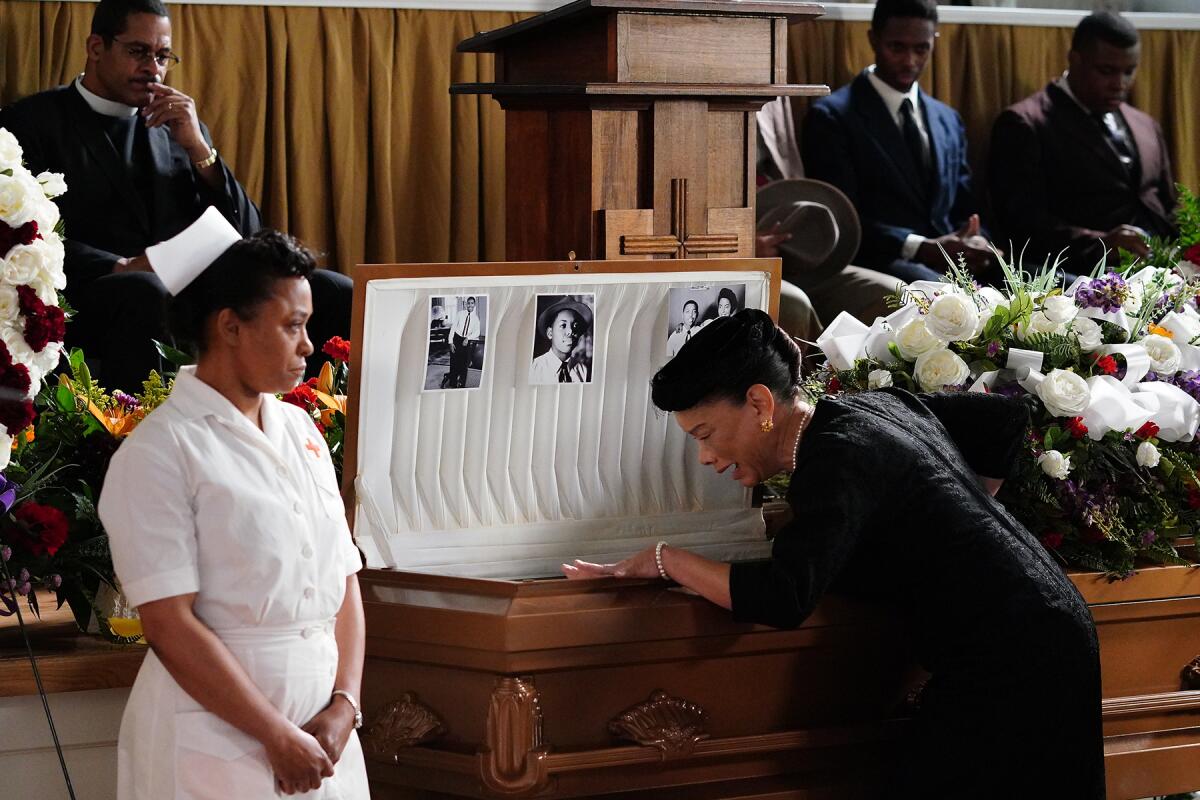
“We’re in this incredibly polarized moment where a great chunk of the country is openly and actively embracing quite racist ideas,” said Hunt, who is the co-author of UCLA’s Hollywood Diversity Report, which examines diversity trends within the entertainment industry annually.
Even Black viewers may be reluctant to relive a painful story, especially after depictions of racist violence in HBO’s “Watchmen” and “Lovecraft Country,” Amazon’s “Them: Covenant” and the Oscar-winning short “Two Distant Strangers” have provoked criticism of Hollywood for profiting off of “Black trauma porn.”
“There is certainly empathy to flow at this point for Emmett Till, coming in the aftermath of the murder of George Floyd, and the tremendous global response to that murder in plain sight,” said Lanita Jacobs, associate professor of American studies and ethnicity and anthropology at USC. “But it is hard and difficult. Black trauma porn, Black death porn, can be overwhelming. Here’s the very necessary spectacle of Black death in the eyes of this mother. That can take a psychic toll.”
But, she added, “Although there is a certain kind of pain in witnessing, there’s also a responsibility on our part to bear witness. These people are no longer here. We need to honor them, say their names, create streets for them, create movies for them. We need to talk about these issues because in many ways they never really did get their due. That fact can lead to justice withheld.”
The complete guide to home viewing
Get Screen Gab for everything about the TV shows and streaming movies everyone’s talking about.
You may occasionally receive promotional content from the Los Angeles Times.
In that context, “Till” is much more than a movie, Beauchamp maintained. “This is a movement. It’s an extension of what we’ve been doing all along to fight for justice.”
And although that fight has led to tributes such as the Emmett Till Unsolved Civil Rights Crime Act, the Emmett Till Antilynching Act and statues saluting Till and his mother, justice has still not been served, he said.
“That’s putting the cart before the horse, because there is one person alive who can still be held accountable for this crime,” said Beauchamp, referring to Carolyn Bryant, the white woman whose accusation led to Till’s death. A grand jury in Mississippi in August declined to indict Bryant on charges of murder and kidnapping, saying there was insufficient evidence.
Beauchamp said he hoped “Till” will lead to the reopening of the case and the conviction of Bryant.
“We must not lose sight of that,” Beauchamp said. “The ‘Till’ story is not just the story of Emmett Till. It’s the story of America. We’re putting a mirror in front of everyone for us to reconcile the past. If we turn a blind eye to the past, it will sneak up on us again.”
More to Read
Only good movies
Get the Indie Focus newsletter, Mark Olsen's weekly guide to the world of cinema.
You may occasionally receive promotional content from the Los Angeles Times.


